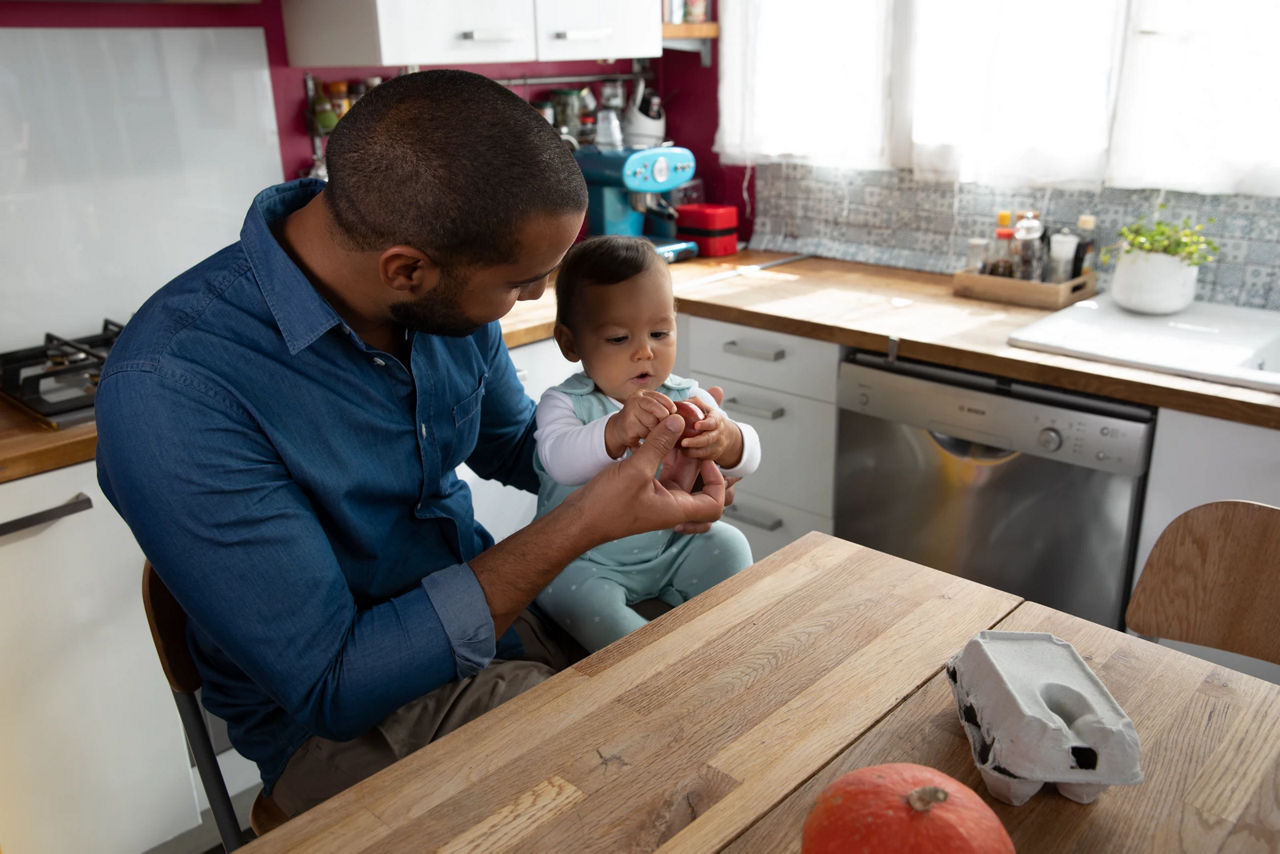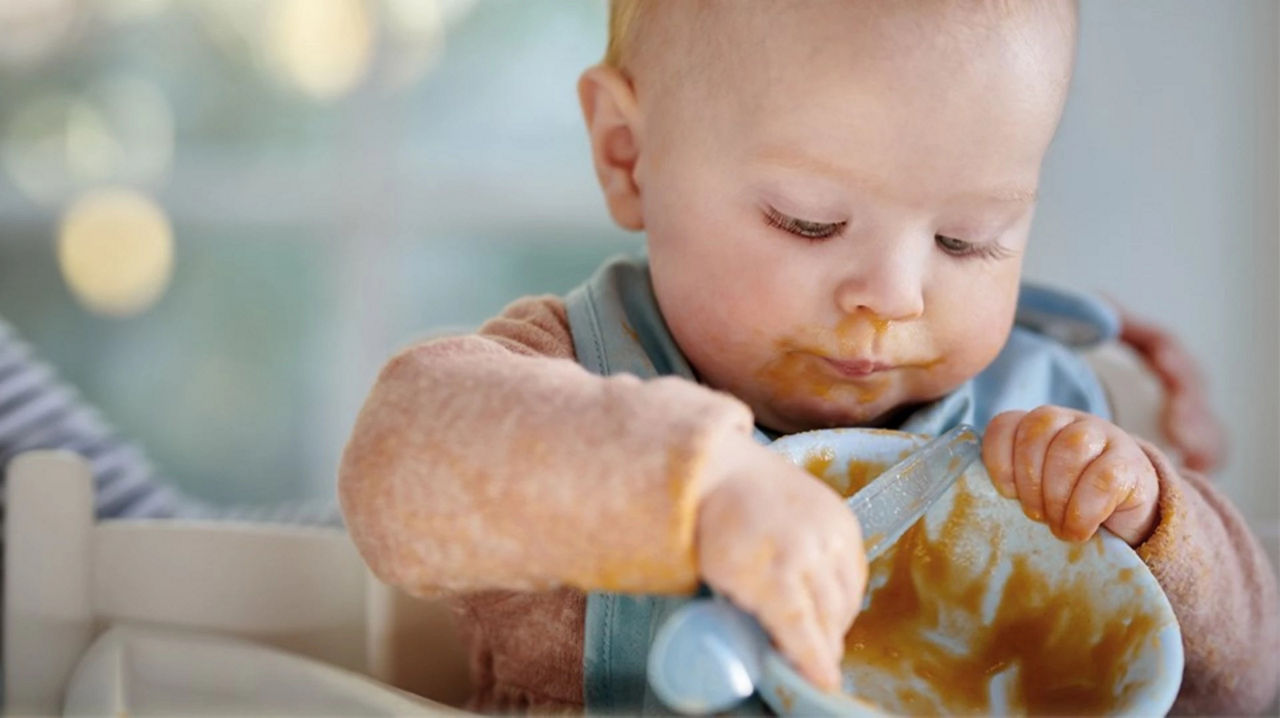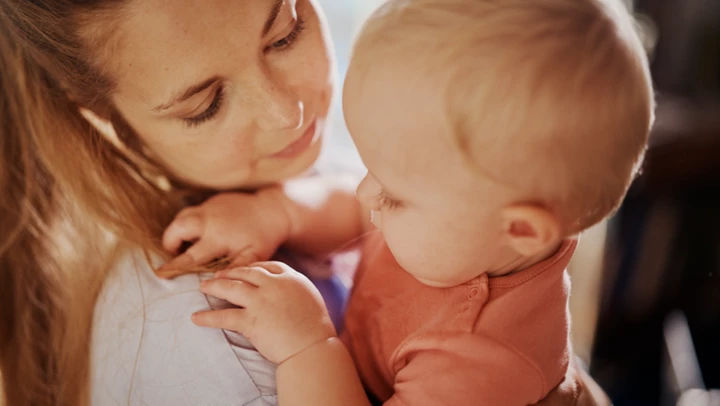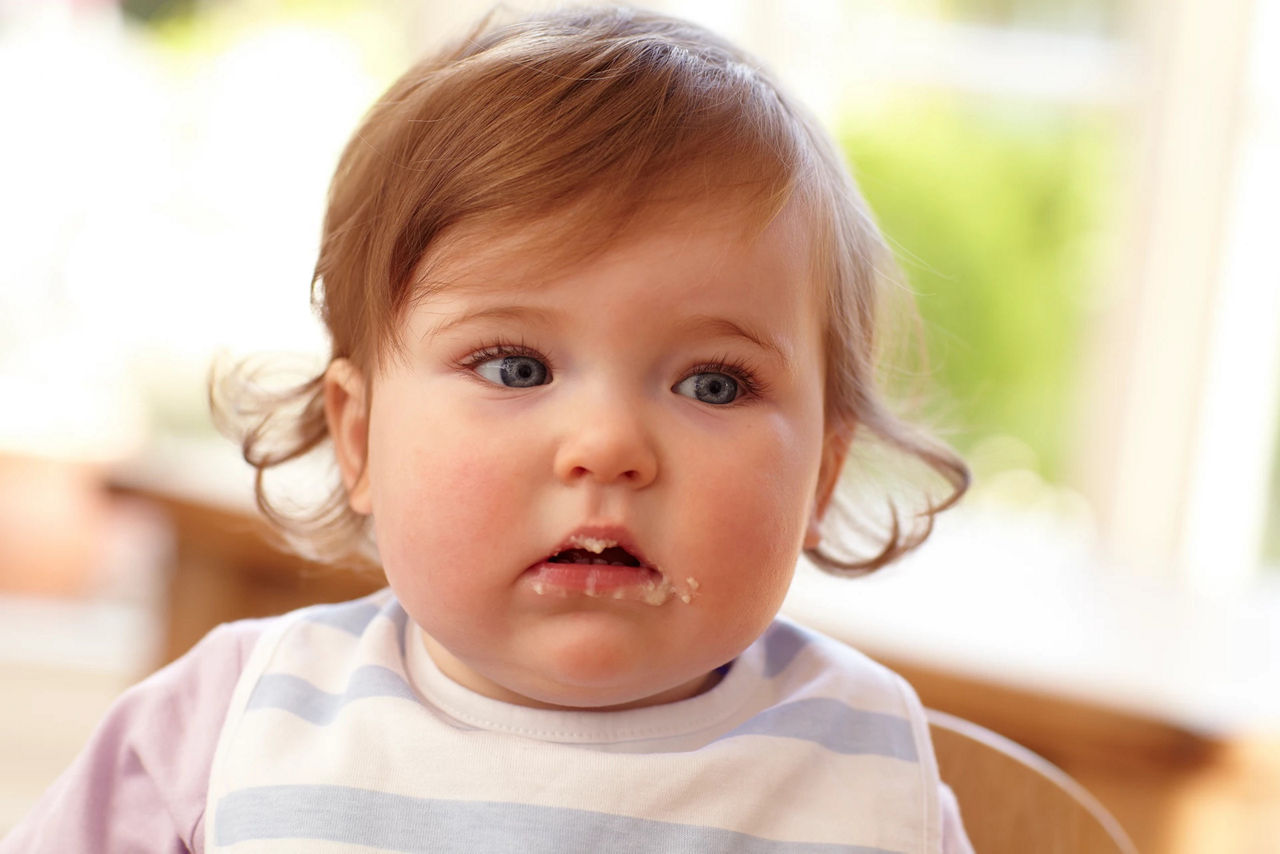If your baby can coordinate their hands and eyes to guide objects to their mouth, they may be ready to start weaning. This is an important stage in their development and should only be started when you are sure they are ready. A sudden, short-lived increase in appetite is not a sign of readiness for weaning.
Signs of weaning
Ready for more
How to tell if it's time for solids
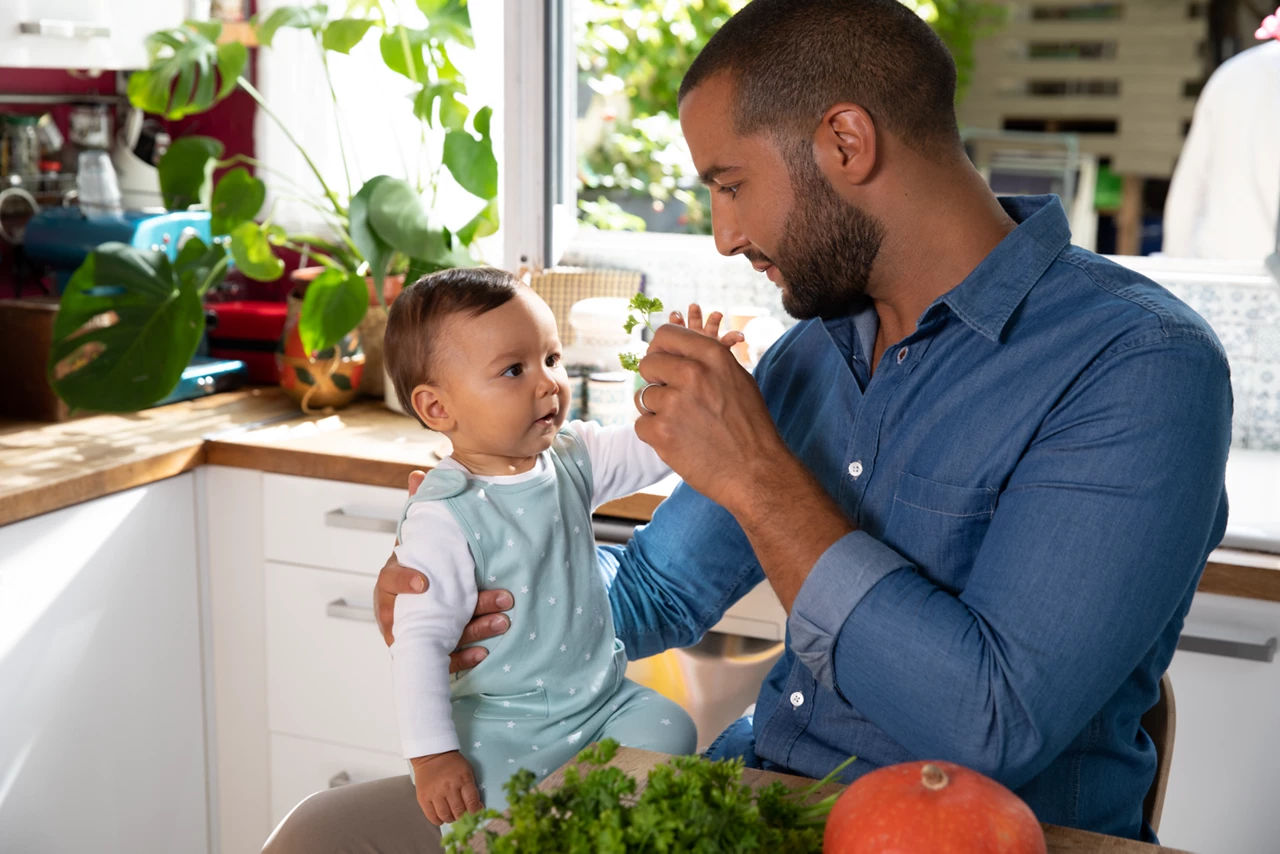
Recognising weaning signs
As your baby learns new skills such as rolling over and sitting up, they’ll be using a lot more energy every day. With their growing appetite, it’ll soon be time to start introducing them to the tastes and textures of first weaning foods. When they are ready to start weaning, your baby will show definite signs that they’re ready for more than milk. All babies develop at their own pace, but knowing what to look out for will make it easier to provide the extra nourishment they need, when they need it.
Ready for weaning or a growth spurt?
Babies often experience growth spurts within their first six months, leading to an increase in hunger. It’s important not to confuse this with the real signs of weaning, as your baby’s digestive system needs time to develop before it is ready to process solids. Research confirms that you should never introduce solids before 4 months (17 weeks). Before this, the gut isn’t sufficiently developed to deal with foods other than breast or formula milk, which means it is more susceptible to sensitivity and infection.
When you start to introduce food to your baby’s diet, it’s important to continue giving them breast milk or formula to make sure they’re still satisfied and getting all the nutrients they need.
The Department of Health recommends that breast milk or formula is the sole source of nutrition for healthy term infants until six months (26 weeks) of age. Before then, your baby will get all the nutrition they need from infant formula or your breast milk.
If your baby’s going through a growth spurt, the increased hunger will only be temporary and their appetite should return to normal relatively quickly. Extra breast milk or formula should be sufficient to meet their increased hunger while it lasts.
When to start weaning
A number of signs will tell you when your baby is ready for weaning. While one or more of these may occur before 6 months, it is rare for all to develop before this time. When your baby exhibits most or all of the simple actions below, they should be ready to start weaning1.
Signs they are ready:
- Sitting up independently - can they sit easily in a highchair with their back supported?
- Holding head upright - can they hold their head steady and move it from side to side?
- Coordinating hands, eyes and mouth - can they grasp objects, like teethers, and put them into their mouth?
- Interested in your food - do they avidly watch you eat or try to take food from your plate?
- Able to swallow food - babies who aren’t yet ready will push their food back out
- Still hungry after a milk feed - this could be a sign, or they might be growing
Waking during the night and sucking fists can be mistaken for signs of weaning. However, these alone are not always signals that your baby is ready for solid foods. If you feel they are ready to wean before 6 months, you should ask your health visitor or doctor for advice.
Related articles

Get in touch with our Careline experts
Our nutritionists and feeding advisors are always on hand to talk about feeding your baby. So if you have a question, just get in touch
- Department of Health. Start 4 Life [Online]. Available at: www.nhs.uk/start4life/Pages/solid-foods.aspx [Accessed July 2014]
Last reviewed: 11th July 2016

